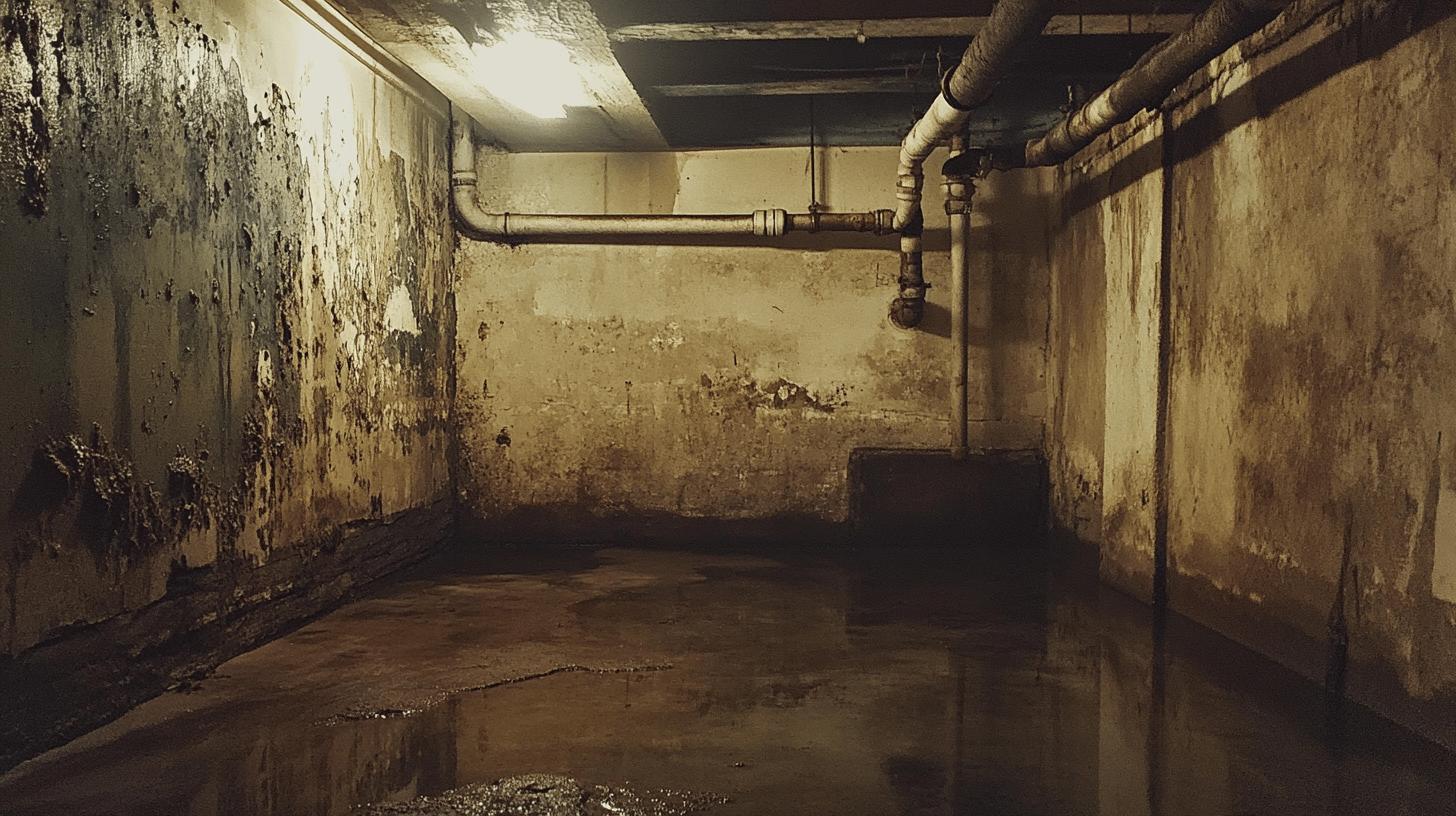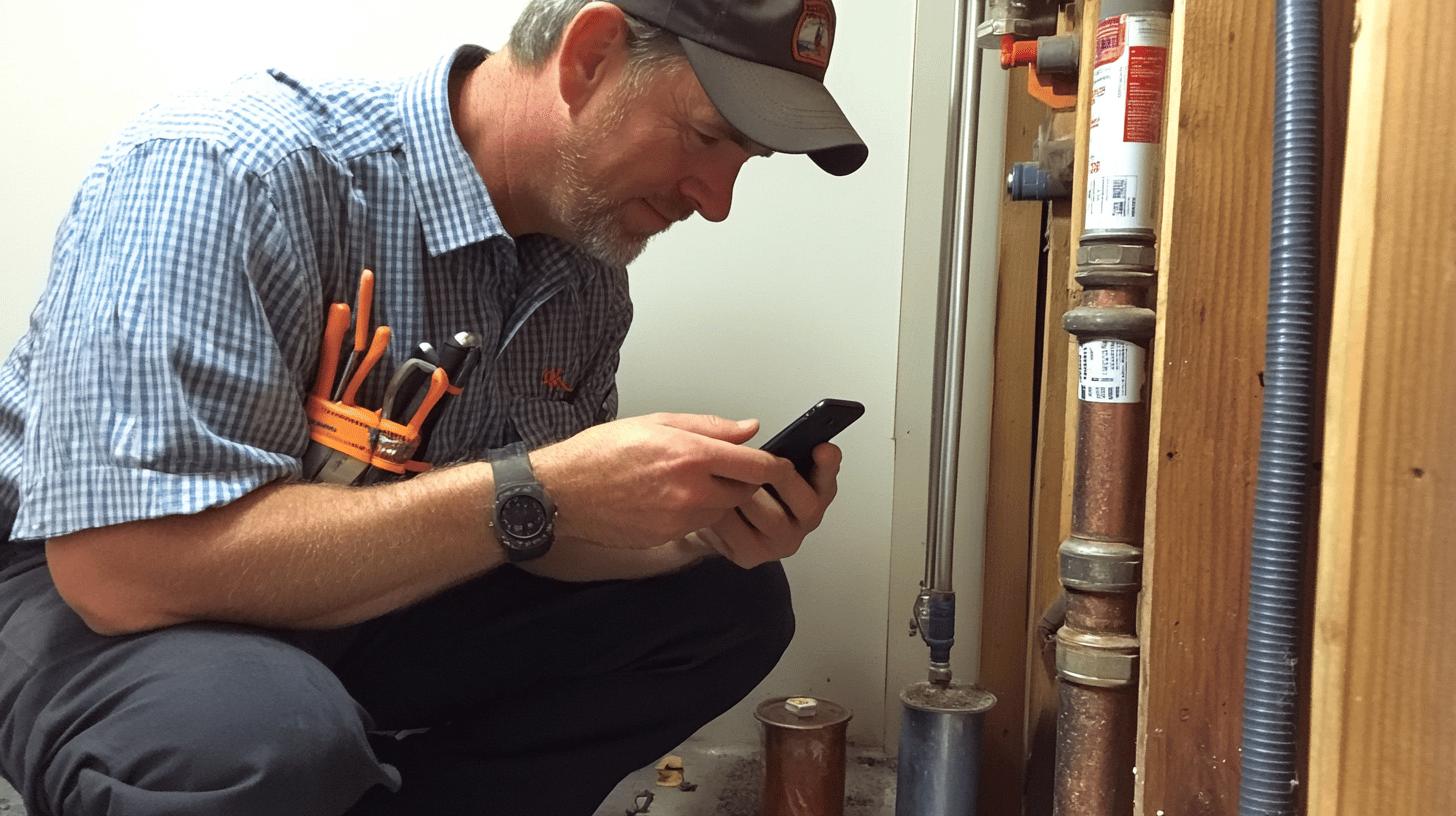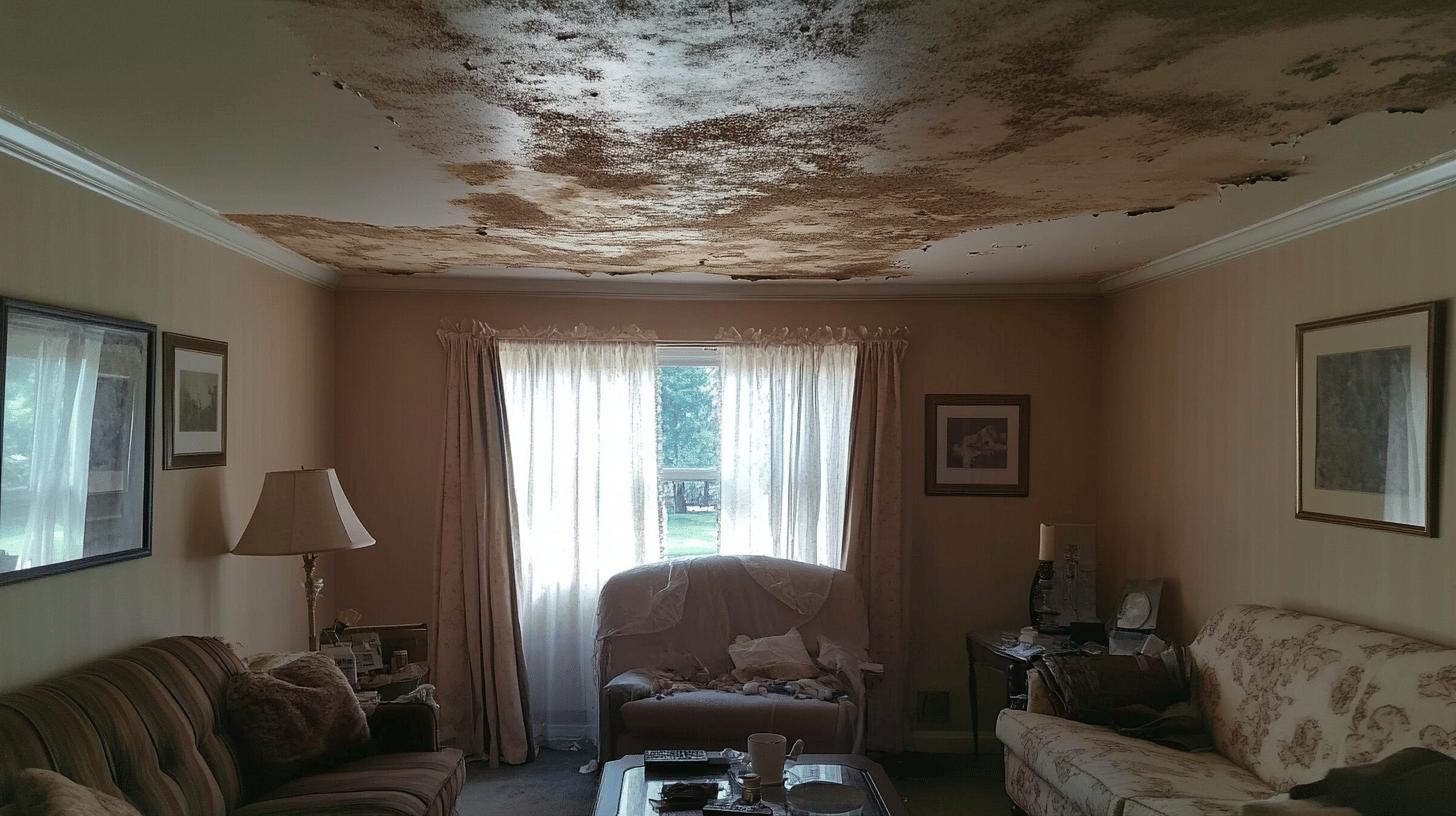TL;DR:
- Homeowners insurance covers sudden, accidental water damage (e.g., burst pipes, leaking appliances) but typically excludes gradual damage from neglect.
- Common exclusions include:
- Neglect/Maintenance
- Mold damage (unless from a covered event)
- Sewer backups.
- Document damage: take photos/videos, keep receipts for repairs.
- File claims promptly with policy details.
- Preventative measures (e.g., regular maintenance, leak detection) can enhance claim outcomes.
- Consider plumbing repair insurance for extra coverage.
- Understand policy details; consult agents for clarity.
- Special risk policies offer broader coverage, including gradual leaks.
- Repair costs vary: ceiling ($500-$1,500), drywall ($200-$750), mold remediation ($500-$3,000).
Is your homeowners insurance ready to cover a plumbing leak? Water damage claims can get tricky—some things are covered, and others aren’t. Most policies cover sudden bursts, but slow leaks or problems from poor maintenance? Not so much. Knowing what’s included in your policy can save you from unexpected costs. Let’s break down what your insurance covers so you’re ready for any plumbing surprises.
Understanding Homeowners Insurance Coverage for Leaking Plumbing
Does homeowners insurance cover water damage from plumbing leaks? Usually, yes—but only for sudden, accidental issues like a pipe burst. Slow leaks that happen over time? Probably not. Insurance covers unexpected problems but often excludes damage from neglect or poor maintenance. Knowing the difference is key to understanding your coverage.
Common plumbing issues often covered by insurance include:
- Burst pipes
- Sudden pipe leaks
- Water heater failures
- Dishwasher leaks
- Washing machine leaks
Plumbing leak coverage can differ a lot depending on your policy, so it’s important to read it carefully. Understanding what’s covered and what’s not can save you from surprises when making a claim. Talking to your insurance provider about possible scenarios can clear up details and even highlight extra coverage options to fill any gaps.
Common Exclusions in Homeowners Insurance for Water Damage

Homeowners insurance usually won’t cover water damage from neglect or poor maintenance. If you ignore plumbing upkeep or miss inspections, slow leaks that cause damage over time likely won’t be covered. Gradual damage is considered a maintenance issue, not an accident. Regular maintenance is key to avoiding these problems.
|Exclusion Type |Description |
|————————|—————————————————————————–|
|Neglect and Maintenance |Damage due to failure to maintain or repair plumbing systems is not covered.|
|Mold Damage |Mold is usually excluded unless caused by a covered peril. |
|Sewer Backups |Damage from sewer line backups is typically not included. |
Understanding what your homeowners insurance doesn’t cover can save you from unexpected costs. Mold damage is usually excluded unless it’s caused by a sudden, covered event. Sewer backups and ground seepage are also not part of most standard policies. Knowing these gaps can help you stay prepared, keep up with maintenance, and consider extra coverage if needed.
Filing a Water Damage Claim: Steps and Tips
How important is documenting water damage? Very. Take clear photos and videos of the damage, and save receipts for emergency fixes. This proves the extent and cause of the issue, making your claim stronger. Without documentation, your claim might be harder to process.
How do you file a claim? Act fast. Call your insurer immediately with your policy number and explain what happened, when it happened, and what steps you took to reduce damage. Clear and detailed communication helps start the process smoothly.
What tips can help with claims? Keep a record of every conversation with your insurer—write down dates, times, and who you talked to. Always follow up written confirmations for verbal agreements. Don’t be afraid to ask questions to avoid confusion.
How does prevention affect your claim? A lot. Showing you’ve taken steps like regular plumbing checks or using leak detectors shows responsibility. Insurers might look at this favorably, making it easier to process your claim.
The Role of Professional Plumbers in Preventing Insurance Claims

Why hire a professional plumber? They help prevent water damage that could lead to costly insurance claims. With regular inspections and maintenance, plumbers can spot and fix problems early, saving you from expensive repairs later. Their skills ensure your plumbing runs smoothly and reduces the risk of unexpected breakdowns. Trusting a pro keeps your plumbing in top shape and avoids big headaches down the road.
- Regular inspections
- Pipe insulation
- Leak detection systems
- Timely repairs
What’s the deal with plumbing repair insurance? It gives you extra coverage for unexpected plumbing problems. Unlike regular homeowners insurance, it can help with costs for repairs or replacements caused by gradual damage or maintenance issues. This type of insurance gives you peace of mind and works alongside professional maintenance to keep your home fully protected.
Evaluating Insurance Policy Details for Plumbing-Related Water Damage
How can you figure out what your policy covers for water damage? Read it carefully. Insurance policies explain what’s covered and what’s not, like sudden pipe bursts versus slow leaks from neglect. Understanding these details helps you know what to expect if you ever need to file a claim.
Why talk to an insurance agent? They can break down confusing parts of your policy, especially about water damage. Agents can also point out gaps in your coverage and suggest extra options, like add-ons for things not included in basic plans. Consulting an agent helps you make smarter choices about protecting your home.
Special Risk Policies
What’s the benefit of special risk policies? They offer better coverage for plumbing-related water damage compared to standard insurance. These policies often cover things like gradual leaks and other problems that basic plans usually exclude. With a special risk policy, you get a stronger safety net against unexpected plumbing issues, giving you peace of mind and better protection for your home.
Cost Considerations for Water Damage Repairs

Water damage repair costs can vary a lot depending on how bad the damage is and which parts of the home are affected. For example, fixing a ceiling can get expensive if there’s structural damage or mold. Drywall repair costs depend on how much water soaked into it. The severity and materials needed will determine the overall price. Keep in mind, insurance may not cover all of these costs, especially if the damage is gradual from slow leaks or poor maintenance, which aren’t usually covered by standard policies.
- Ceiling repairs: $500 – $1,500
- Drywall repair: $200 – $750
- Mold remediation: $500 – $3,000
Insurance usually covers sudden incidents, but homeowners are often left to pay for gradual damage. This difference can lead to significant out-of-pocket costs. While some policies may cover the initial damage, they might not cover the repair of the source, like a broken plumbing fixture. It’s important for homeowners to understand their policy limits and consider extra coverage if needed. Knowing these cost factors can help with financial planning and guide steps to prevent major damage and expensive repairs.
Final Words
Knowing what your homeowners insurance covers for leaking plumbing can save you a lot of stress and money. It’s important to understand the difference between sudden, accidental damage and slow leaks caused by neglect. Get to know what your policy excludes and how the claims process works. Talk to professionals and check your coverage to make sure you’re fully protected. Since policies can vary, always ask your insurer about how water damage from leaks is covered. Stay informed and take action to keep your home safe and avoid surprises.
FAQ
Does homeowners insurance cover plumbing leaks?
Homeowners insurance typically covers sudden and accidental plumbing leaks. This includes scenarios like burst pipes. Gradual damage due to neglected maintenance is generally not covered.
Does homeowners insurance cover pipe replacement?
Insurance usually does not cover pipe replacement unless damage results from a sudden incident. Routine wear and tear or gradual deterioration are typically excluded.
Does homeowners insurance cover plumbing repairs?
Coverage often includes repairs for accidental leaks but not routine maintenance or gradual issues. Review your policy to understand specific limitations.
Does homeowners insurance cover broken pipes under foundation?
Policies may cover damage from sudden breaks under foundations. However, gradual problems often aren’t included, so clarity on your specific policy is vital.
Does State Farm home insurance cover plumbing leaks?
State Farm generally covers accidental plumbing leaks. It’s best to verify with an agent for detailed policy specifics.
Does homeowners insurance cover water damage from leaking pipes?
Sudden leaks causing water damage are commonly covered. However, gradual leaks typically fall outside coverage.
How to make a successful water leak insurance claim?
Document the damage thoroughly with photos. Contact your insurer promptly. Provide accurate documentation to support your claim for efficient processing.
Does homeowners insurance cover water damage from a clogged toilet?
You are often covered for sudden overflow causing damage. Coverage might not extend to damages from lack of maintenance or gradual buildup.
Does homeowners insurance cover water damage from rain?
Rain-induced water damage is covered if accidental and sudden. However, policies usually do not cover flooding.
Water damage insurance claim tips
Document all damages, communicate with your insurer promptly, and maintain records. Following these tips can help streamline the claims process.

